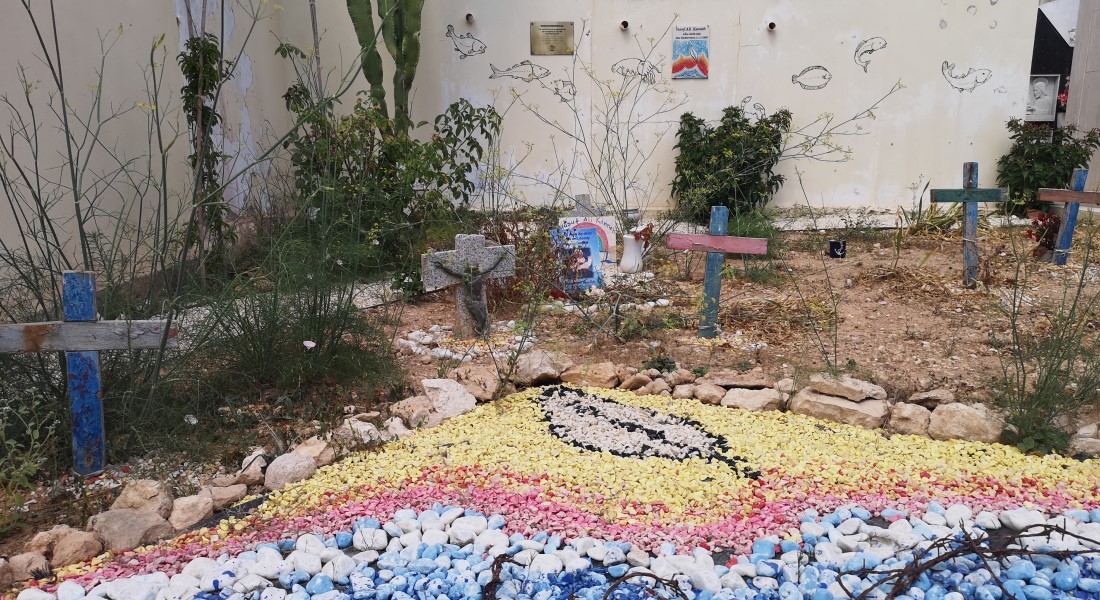The Social Life of Dead Bodies: A new ethnographic approach to migrant deaths in and around the Mediterranean Sea (SOLID)
This project explores the social life of deceased migrants in and around the Mediterranean Sea by bringing together forensic, social, economic, humanitarian, and political actors and perspectives on the same unidentified bodies of deceased migrants.

This project explores the social life of deceased migrants through the analytical lens of ‘social anatomy’. It employs a research strategy that is ethnographic, global and collaborative making use of qualitative and quantitative methods capable of mapping, tracing and stitching together the diverse configurations of social arrangements.
The overall aim of this research project is to promote the humanisation and social visibility of deceased migrants by creating a broader understanding of the human lives behind the tragic statistics of migrant deaths.
Throughout the project period, we will:
- Empirically investigate migrant deaths in multiple contexts and from the various positions, places and people that are affected.
- Theoretically develop new insights into migrant deaths through the analytical gaze of social anatomy.
- Methodologically develop and implement generative collaborations.
- Institutionally construct a collaborative institutional setting for scholarship on migrant deaths at the Centre for Global Criminology, the University of Copenhagen.
This project approaches the 'social anatomy' of migrant deaths from three angles:
- The researchers will use fieldwork and interviews to explore how families try in different ways to find their missing loved ones and cope with uncertainty. This will be done primarily in two countries: Somaliland and Morocco. Somaliland (and Somalia) is one of the countries from which many migrants flee, while Morocco is both a transit and sending country.
- At the same time, the project is following forensic experts in Spain and Greece who are working to identify deceased migrants, usually without identity papers, and to determine the causes of death and any signs of what they may have been through before - such as physical abuse.
- Finally, through fieldwork conducted among politicians in the two countries, the project will explore how politicians implement national and European policies in the area and how the high number of deaths affects the political decision-making process.
The three field studies will be complemented by two workshops where the project will bring together survivors, bereaved families, forensic experts, organisations and authorities in an unconventional way to gain new perspectives on the social traces left by the deaths.
- Prof. Dr. Stella Martin de las Heras, MD, BDS, PhD, and Associate Professor Leticia Rubio Lamia, Department of Forensic Medicine, University of Malaga, Spain
- Associate Professor in Forensic Medicine Elena F. Kranioti, University of Crete, Greece
- Forensic Scientists Jan Bikker and the Forensic Missing Migrant Initiative
- Professor Jason de Leon, the Department of Anthropology and Chicana/o Studies, The University of California (UCLA)
- Senior Researcher Finn Stepputat, The Danish Institute for International Studies (DIIS)
- Border Forensics, (BF), Geneve (Border Forensics – Investigating border violence, fostering mobility justice)
Researchers
| Name | Title | Phone | |
|---|---|---|---|
| Anja Simonsen | Associate Professor | +4535323492 |
Funded by

The Social Life of Dead Bodies: A new ethnographic approach to migrant deaths in and around the Mediterranean Sea (SOLID) has received a four year funding from European Research Council, the ERC Starting Grant 2024
Period: 2025 - 2029
Contact
Anja Simonsen (PI)
Associate Professor
Department of Anthropology
E-mail: anja.simonsen@anthro.ku.dk
Phone: +45 35 32 34 92
Linkedin
